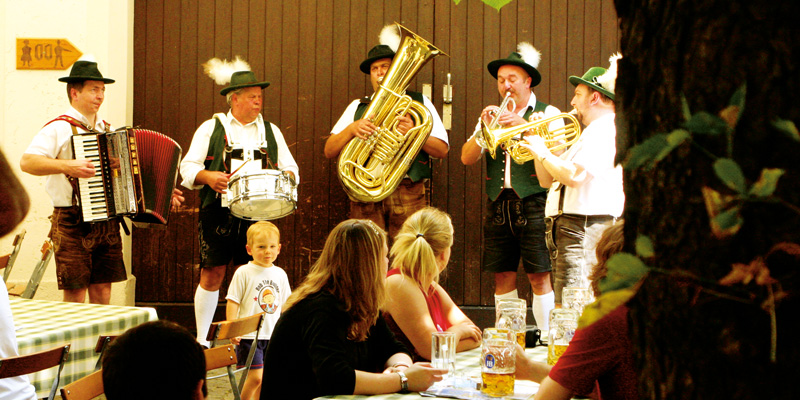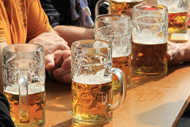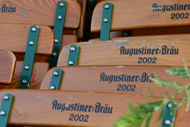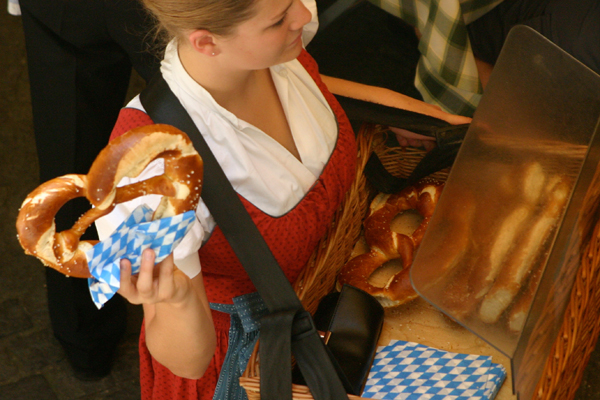
We owe the origin of beer to the accident of someone happening to witness the fermentation process, or more precisely, the good fortune that some bread dough was left standing. Beer’s beginnings date back to ancient times; the Sumerians were already brewing beer between the Tigris and the Euphrates in the fourth millennium before Christ. The Egyptians went to work on unbaked bread dough. The Greeks used barley water for healing purposes and even Caesar is said to have revived his troops with nutritious beer, although the “barbarian” drink was less favored by the wine-loving Romans.
Beer amphorae found near Kulmbach, dating back to 800 B.C., are the oldest proof of German beer manufacture. The oldest existing commercial brewery is Weihenstephan – it received its license to brew and sell beer in 1040 A.D. The Munich monastery was crucial to the development of the brewing arts. In the 14th Century, Augustinian monks brewed their beer under the slogan “Liquida non frangunt ienum” (A liquid does not break the fast). In consideration of their hard work and often meager meals, especially during periods of fasting, beer was considered liquid nourishment; the monks could have up to five servings a day. Brewing success seemed haphazard back then, since people first learned about yeast bacteria from Louis Pasteur. Only then could the bacteria be used systematically. As a result, the brewing process was a mystical affair with elements of superstition and incantation.
Read more …











